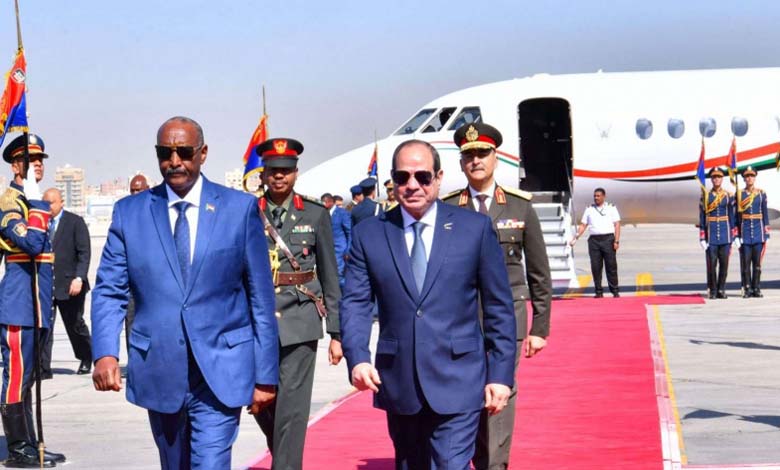Behind the scenes of secret meetings between Cairo and Khartoum: a plan to dismantle the Muslim Brotherhood’s influence in the Sudanese army

As suspicions grow over the depth of the Islamist movement’s infiltration – the Sudanese branch of the Muslim Brotherhood – within Sudan’s military establishment, confidential leaks from multiple sources have revealed that secret meetings were recently held between senior Egyptian officers and their Sudanese counterparts.
-
Leaks on undisclosed Egyptian-Sudanese meetings: Cairo pushes for the elimination of the Muslim Brotherhood’s influence within the Sudanese army
-
Egypt and the Muslim Brotherhood: Talha’s Release Exposes Double Standards and Threatens Regional Security
These meetings, some convened in Cairo and others in secure military compounds along the Egyptian–Sudanese border, placed the Islamist question at the forefront, framing it as the most pressing shared threat to both nations’ security.
According to the leaked accounts, the Egyptian delegation made it unmistakably clear that Cairo would not accept any future political arrangement in Sudan that allows Islamist networks to maintain positions of influence within the army. Egyptian officials described the presence of Brotherhood-aligned officers as a direct security risk. Leaving the issue unresolved, one senior figure warned, would give the group a potential military foothold dangerously close to Egypt’s heartland, “a red line that cannot be crossed.”
-
The Release of Talha… An Egyptian Contradiction Opening the Doors to Chaos in Sudan
-
Contradictions in the Egyptian Discourse: Between Declared Hostility Toward the Muslim Brotherhood and Implicit Cover for Affiliated Factions
The investigation further reveals that Cairo discreetly offered support to Sudanese commanders opposed to the Brotherhood, including direct communication channels, intelligence sharing on Brotherhood-linked officers, and assurances of political and regional backing for those willing to pursue a firm stance against the group within the armed forces.
A leaked document from one of the closed sessions outlined practical measures aimed at curbing Islamist influence. Proposals included the gradual reassignment of Brotherhood-aligned officers to less influential posts, their removal from leadership roles under the pretext of restructuring, and in certain cases, covert security measures against those proven to be actively engaged in organizational activity.
-
Ceding Halaib: A wound to sovereignty and a threat to Sudan’s national security
-
Sudan’s Recognition of Egypt’s Sovereignty over the Halaib Triangle: Surrender of Sovereignty or Political Deal?
These points suggest that Egypt is pushing for a calculated strategy to dismantle the Brotherhood’s presence within Sudan’s military, considering it a prerequisite for regional stability.
The disclosures also underscore the growing internal dilemma within Sudan’s army: while some commanders acknowledge the extent of Islamist infiltration, others fear that open confrontation could trigger destabilizing fractures. More critically, there are concerns that leaked evidence could expose to the public and regional actors the true scale of the Brotherhood’s penetration, intensifying external and domestic pressures on the military.
-
Egypt Derails the Quartet Summit on Sudan: Military Support Blocks the Peace Process
-
Is Sudan Moving Closer to Designating the Muslim Brotherhood as a Terrorist Group?
This dynamic demonstrates that the battle against the Brotherhood in Sudan is no longer a purely internal matter; it has evolved into a regional file directly managed by Cairo. For Egypt, which sees the Brotherhood as an existential enemy, the objective is clear: to close off any pathway for the group’s return through Sudan. For the Sudanese army, however, the situation remains volatile, caught between Egyptian demands and the looming risk of internal rupture — a fragile balance that could collapse at any moment.












